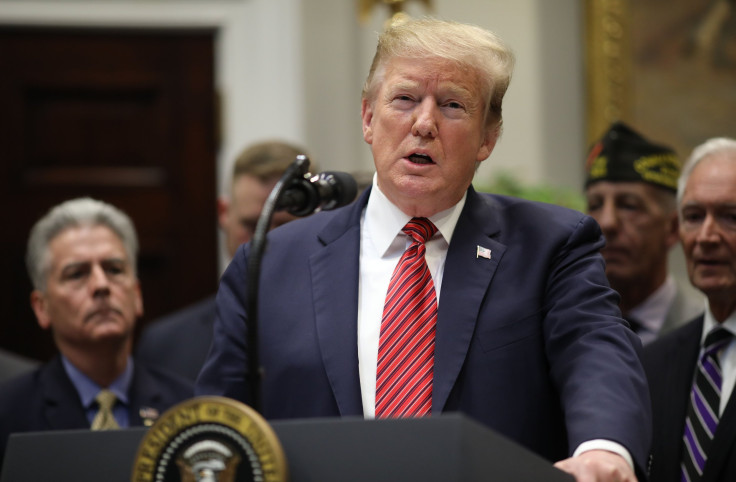US Budget Deficit Up 77% As Trump's Tax Cuts Kick In

Over the last four months, the U.S. federal government has incurred a deficit that is 77 percent higher than the shortfall recorded over the same period last year.
The Treasury Department said Tuesday that the U.S. government's deficit for the first four months of this budget year rose to $310.3 billion -- a full $134.6 billion dollars more than the deficit during the same period last year. This is in spite of the government reporting a budget surplus amounting to $8.7 billion in January.
Experts say the higher deficit indicates increased public expenditures for social security, defense and the national debt as the government grapples with the consequences of the Trump administration's Tax Cuts and Jobs Act. The law, which Congress approved in 2017, reduced taxes for individuals and corporations by a massive $1.5 trillion.
The federal government deducted a total $818 billion from individual paychecks between October and January, reflecting a 3 percent decrease from individual income tax collections the same time last year. Corporate income taxes saw a 23 percent drop over the period.
The U.S. government saw higher revenues from tariffs -- taxes collected on imported goods -- as Washington's trade war with China earned the U.S. government some $25 billion, with import revenues soaring 91 percent over those gained during same four-month period last year.
The Congressional Budget Office expects this year's deficit to reach $897 billion, which would reflect a 15.1 percent increase over last year's $779 billion shortfall. The CBO estimates the federal deficit will begin to exceed $1 trillion by 2022.
In all, government revenues from October to January amounted to $1.11 trillion, decreasing 1.7 percent from the same period a year ago. The government spent $1.15 trillion during the same timeframe, up 8.8 percent from the same period a year ago.
While many economists had warned that Trump's lavish tax cuts and spending would widen the deficit, the CBO had earlier said that the U.S. would have seen large and growing deficits even without Trump's tax plan.
The Trump administration had seen the reduction in corporate tax rates as a means to make the U.S. a more desirable location for multinational companies. The problem is, Trump never said how the government is supposed to address the resulting deficit -- apart from enacting protectionist policies that have so far done little to curb the widening federal shortfall.
Some economists have also argued that the cuts could ultimately hurt the economy by increasing borrowing costs for Americans and limiting the government's capacity to spend.
© Copyright IBTimes 2025. All rights reserved.





















